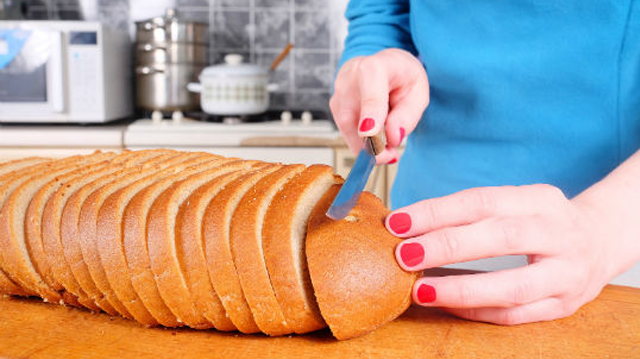No one is a stranger to the word carbohydrates, aka carbs; however, like many other people, you may be unclear as to which carbs are good or bad. Of all the questionable carbohydrate sources available, there is one that stands out above others as being particularly harmful to the body.
The one carb you should never touch in the interest of your health is… processed bread.
Why is bread bad?
Glycemic index
Consider for a moment the effect of a food’s glycemic index (GI) on the body’s blood sugar and insulin levels. We know that low GI foods have a more stabilizing effect on blood sugar and create less of a spike in insulin levels in response to their consumption.
That being said, let’s take a look at the GI of bread. White bread has a GI of 100, hamburger buns have a GI of 61, whole wheat bread has a GI of 71, and white pita bread has a GI of 68. Clearly, many breads carry a high GI load that causes impacts on your blood and insulin levels, which can put you at risk of developing diabetes and weight gain.
Not to mention, research published in the American Journal of Clinical Nutrition found evidence that when postmenopausal women consume high glycemic foods, it can increase their likelihood to develop an aggressive form of breast cancer.
A look at what’s inside
The sad truth is that refined white flour has virtually no vitamin or mineral content. The process of refining food destroys all the vital nutrients within it. The process of refining grain means losing half of the unsaturated fatty acids, all of the vitamin E, more than half the calcium, as well as most of the iron, magnesium, and B vitamins.
Other ingredients in that loaf of bread include processed salt, high fructose corn syrup, trans fat, soy, emulsifiers, preservatives, reducing agents, and enzymes. Many of these ingredients are not listed on the label.
These processed grain products are thought to be responsible for increasing the risk of developing obesity, diabetes, allergies, heart disease, asthma, gluten intolerance, celiac disease, and many chronic inflammatory conditions.
Whole wheat is not healthy either
Although many whole wheat products are promoted as being heart healthy and a healthy alternative, it is not healthy at all. Wheat seeds are cross-bred with chemicals and regularly exposed to pesticides. Once it has matured, wheat is doused with pesticides again, and the drying process exposes it to heat levels that damage the protein content and nutritional value.
People with celiac disease are not the only ones who can suffer from consuming the gluten in wheat either. At least 30 percent of the world’s population is estimated to be gluten sensitive, but so far, testing for gluten sensitivity is not reliable. It is confused in many cases with irritable bowel syndrome.
Wheat has also been linked with systemic inflammation throughout the body, as well as containing neurotoxic properties. The gluten protein in wheat contains gliadin, which is linked to worsening behavioral and neurological disorders.
Gluten-free is still processed
Not even gluten-free bread is totally safe. That bagged and packaged stuff on the shelves is still a processed food. Additionally, some gluten-free breads may also spike blood sugars and cause insulin issues, depending on the types of starches they include.
Side effects of high carb meals
· Fatigue – Pronounced exhaustion.
· Intestinal bloating – Higher production of intestinal gas causing various levels of intestinal distress.
· Brain fog – A hindered ability to focus your attention and experiencing some various levels of cognitive impairment.
· Increased blood pressure – Spiked levels of insulin in the blood can lead to an elevation of blood pressure as well.
· Hypoglycemia – The drop in blood sugar levels can create feelings of jitteriness, agitation, and moodiness, as well as dizziness.
Good carbs
A good carb is a plant food that contains vitamins, minerals, fiber, phytochemicals in conjunction with the carbohydrates. The fiber component is important because it slows down the digestive process, so that more nutrients are absorbed. It also helps prevent sudden spikes and dips in blood sugar levels, while also providing a feeling of fullness to inhibit overeating.
Just a few healthy carb choices include vegetables, fruits, and legumes. As far as bread, it is possible to make your own healthy, gluten-free loaves at home, using nutritious, whole ingredients.
Check out this recipe for some great sandwich bread, to get you started!
-The Alternative Daily
Sources:
http://www.webmd.com/food-recipes/carbohydrates
http://www.thealternativedaily.com/study-high-intake-of-bad-carbs-increases-risk-of-breast-cancer
http://www.thealternativedaily.com/high-bread-wheat-lies-exposed
http://www.livestrong.com/article/291111-the-best-breads-for-a-low-glycemic-diet

